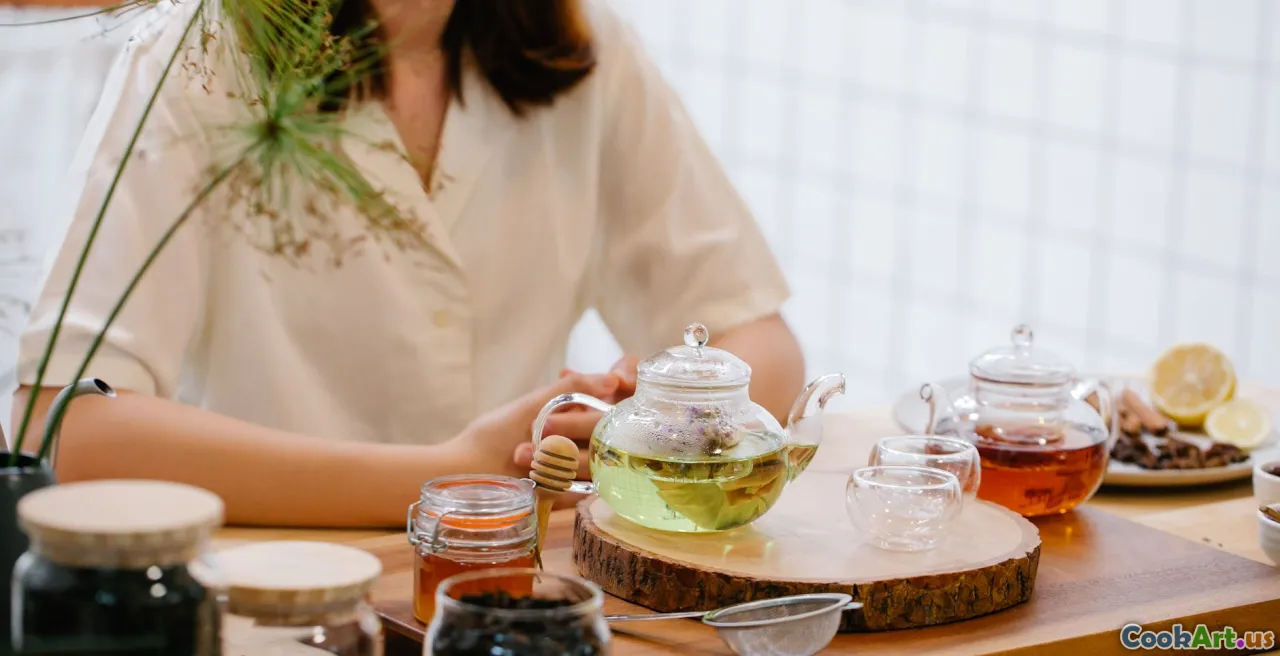Elevating Tea Cocktails with Herbal Infusions
8 min read Discover how herbal infusions transform tea cocktails into sophisticated, aromatic experiences that delight the senses and elevate your bartending craft. April 29, 2025 17:55
Elevating Tea Cocktails with Herbal Infusions
Imagine a sip that transports you—where the familiar warmth of tea meets the vibrant complexity of herbal infusions, creating a symphony of flavors that dance on your palate. Tea cocktails are no longer just a comforting brew; they are evolving into sophisticated, aromatic experiences that captivate both the senses and the soul. This renaissance is largely driven by the artful use of herbal infusions, which impart depth, aroma, and a touch of magic to every glass.
The Cultural and Historical Canvas of Tea and Herbs
Tea has a storied history that spans continents and centuries—originating in ancient China, spreading through Asia, and eventually becoming a global staple. Its versatility has allowed it to integrate seamlessly into diverse cultures, from the delicate Japanese matcha ceremonies to the robust Indian chai traditions.
Herbal infusions, meanwhile, have been used for millennia in medicinal and ritualistic contexts, from the chamomile teas of Europe to the sacred herbs of indigenous tribes in the Americas. When these two worlds collide—tea and herbs—the result is a rich tapestry of flavor and tradition.
In the realm of mixology, this confluence offers a fertile ground for creative experimentation. The herbal infusions breathe new life into classic cocktails, transforming them into multi-layered sensory journeys.
The Art and Science of Herbal Infusions in Cocktails
Understanding Herbal Profiles
Herbs bring more than just flavor; they evoke aroma, texture, and visual appeal. Basil offers a sweet, slightly peppery note; mint provides cooling freshness; rosemary lends piney, resinous undertones; lavender introduces floral elegance; and citrus herbs like lemongrass or lemon balm add brightness.
Creating an herbal infusion involves extracting these aromatic compounds, usually by steeping fresh or dried herbs in a neutral spirit, water, or even tea itself. The infusion process can range from a quick steep to a slow, deliberate maceration, depending on the desired intensity.
Techniques for Herbal Infusions
- Cold Infusion: Steeping herbs in alcohol or tea at room temperature for several hours or overnight, preserving delicate aromas.
- Hot Infusion: Using gentle heat to extract robust flavors quickly, ideal for hardy herbs like rosemary or thyme.
- Layered Infusions: Combining multiple herbs or integrating herbal teas with spirits for complex profiles.
Pairing Herbs with Tea Bases
The choice of tea base—green, black, white, oolong, or herbal—sets the foundation for your cocktail. For example:
- Pair green tea with mint and lemongrass for a refreshing, Southeast Asian-inspired drink.
- Use black tea with rosemary and bergamot for a rich, Earl Grey-infused cocktail.
- Combine white tea with lavender and honey for a delicate, floral experience.
Signature Herbal-Infused Tea Cocktails
1.Lavender Earl Grey MartiniIngredients:
- Earl Grey tea-infused gin
- Lavender syrup
- Lemon juice
- Ice
*Preparation:*Infuse gin with dried lavender and Earl Grey tea leaves for 24 hours. Shake with lemon juice and a splash of lavender syrup over ice. Garnish with a sprig of lavender.Sensory Experience: The floral notes of lavender intertwine with the citrusy brightness of the lemon, while the bergamot in Earl Grey adds a sophisticated depth.
2.Mint and Lemongrass Green Tea FizzIngredients:
- Brewed green tea
- Fresh lemongrass infusion
- Fresh mint leaves
- Sparkling water
- Honey or agave syrup
*Preparation:*Combine cooled green tea with lemongrass infusion and muddled mint leaves. Sweeten with honey, then top with sparkling water. Serve chilled.Sensory Experience: A cooling, herbaceous burst with citrus undertones, perfect for a summer refresh.
3.Rosemary and Chamomile Tea Old FashionedIngredients:
- Rosemary-infused bourbon
- Chamomile tea syrup
- Angostura bitters
- Orange peel
*Preparation:*Stir infused bourbon with chamomile syrup and bitters. Strain into a rocks glass over ice. Garnish with an orange peel twisted to release oils.Sensory Experience: The herbal complexity and floral sweetness evoke calm and sophistication.
Crafting Your Own Herbal-Tea Cocktail Experience
Creating herbal-infused tea cocktails is both an art and a science. Here are some tips to elevate your mixology:
- Start with quality ingredients: Fresh herbs, high-quality teas, and good spirits lay the groundwork.
- Balance is key: Herbal infusions should complement, not overpower, the base spirit or tea.
- Experiment with infusion times: Adjust steeping durations to achieve desired strength.
- Presentation matters: Use vibrant garnishes, colorful herbs, and elegant glassware to enhance visual appeal.
Personal Reflections and Inspiration
As a passionate explorer of flavors, I’ve found that herbal-infused tea cocktails are a gateway to storytelling through taste. Each herb carries its own history and symbolism—mint for freshness, lavender for serenity, rosemary for remembrance.
One memorable evening, I crafted a cocktail using jasmine tea and basil, inspired by a garden in full bloom. The floral aroma paired with the sweet, peppery basil created a sensory harmony that lingered long after the last sip. Such moments underscore the power of herbal infusions to evoke memories, moods, and cultural stories.
Final Thoughts: Elevate Your Mixology Game
Herbal infusions are revolutionizing the way we approach tea cocktails. They invite us to be curious, to experiment, and to craft drinks that are as meaningful as they are delicious. Whether you're a seasoned bartender or an enthusiastic home mixologist, embracing herbal infusions can unlock new dimensions of flavor and artistry.
Next time you reach for a teapot or a bottle of spirits, consider how herbs can transform your drink into a vibrant, aromatic masterpiece. Cheers to elevating your beverage repertoire—one herbal infusion at a time!









